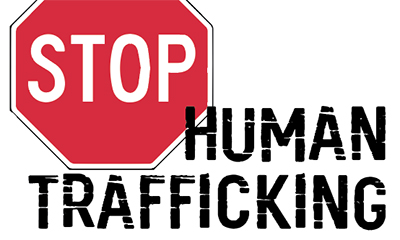Human trafficking in Assam has emerged as one of the most serious social evils of current time. The situation is further compounded at an alarming rate by ever increasing poverty, insurgency and perennial flood prevalent in the region.
The prime goal of the project is to prevent trafficking of women and children from northeast India. Rescue operations are initiated to recover the survivors from the place of exploitation and put them in safe custody. The project will also provide the survivors with rehabilitative services both quick and long term including legal aid, counseling and vocational training and restoration or repatriation.
Global Organization for Life Development under the aegis of ECPAT Luxemburg initiated the journey of project Mukti on October 2015 with a view to create a society free from human trafficking. To assess the general awareness on human trafficking within the community a baseline survey was conducted at five districts of Assam involving all sections of people and covering all ages with equal representations from both the sexes. From the general survey it was crystal clear that the majority of the population is not aware about human trafficking. Therefore prevention of trafficking by generating community awareness and sensitization of various stakeholders is found to be very of crucial importance and the Project Mukti is expected to prove highly fruitful in days to come.
PROJECT ACHIVEVEMENTS
- A Base line study was conducted taking 1300 different categories of persons as random sample. Structured and open ended questionnaires were the tools for the survey. The Baseline survey was completed in March 2016 and the report was published. This report will be utilized to assess the impact of the activities against the achievements at the end of the project.
- Eighty-eight awareness camps has been proposed to be held at the source communities. The selected areas were identified as vulnerable areas by different sources. Approximately nine thousand community persons will be sensitized on the issue of human trafficking.
- Eighty-eight Vigilance Committees” are proposed to be constituted in the source areas to intervene incidents of human trafficking. One Vigilance Committee will be constituted in the Indo-Bhutan border and another will be constituted in the Indo-Bangla border to combat cross border trafficking.
- One hundred survivors will be rescued by felicitating rescue operations with local police. All these survivors will be provided with safe shelter and post rescue services for their ultimate rehabilitation.
- It is estimated that approximately one hundred survivors will be restored home during the project period. Home investigation will be done for each survivor to decide whether the family is fit to receive the custody of the survivor without future risk of re-trafficking.
- Approximately one thousand police personnel will be sensitized at the respective police stations. Requisite IEC materials were developed for police training. Fifty railway police personnel will be sensitized at the Police Headquarter with emphasis on maintenance of vigilance at the transit areas.
- Networking with grassroots level NGOs will be done to enhance the capacity of such NGOs to combat human trafficking and to work in collaboration to achieve a common goal.
- Twenty-seven lawyers were sensitized during March 2016. A “Legal Cell” was also constituted with an objective of extending legal aid to deserving women on humanitarian ground.
- One State level workshop was organized during March 2016.There were fifty participants from law enforcement, government departments and NGOs. The recommendations from the group were forwarded to the government of India for appropriate action. During the workshop a memorandum was signed by all the participants appealing all political parties to include anti-trafficking agenda in their election manifesto for the forthcoming general election.
- Ten awareness programs were conducted in Guwahati. High school students were sensitized and it is expected they will spread the anti-trafficking message among their peers.
MUKTI and School Program on Child Sexual Abuse
OBJECTIVES
- Well sensitized school going students to identify sexual abuse, its vulnerabilities and their perfect response in event of any sexual abuse.
- Well sensitized school teachers to identify sexual abuse and subsequently initiate appropriate action. The teachers will be continually educating the students to minimize all kind vulnerabilities resulting in sexual abuse.
- Well sensitized parents on good parenting to keep their children safe from abuse.
Training of school students are being conducted on Child Sexual Abuse in different districts of Assam. Necessary permission from the state education department has been obtained to conduct such training. This program is very new to the state and was never been initiated before and it is expected that the project will open up new dimension in eliminating sexual abuse of children of the state
ACTIVITIES
- Awareness program in schools:-Awareness program will be conducted in forty schools of the district in one year. The young students from VII to X standard will be trained. It is estimated that approximately six thousand students will be made aware on Child Sexual Abuse .IEC materials, short film show and other audio visual aid suitable for the children will be used..
- Training of teachers: - The teachers will also be trained on their roles and responsibilities to combat child sexual abuse. It is expected that approximately 500 teachers will be trained.
- Training of the parents:- It is expected that approximately 200 parents will be made aware on child sexual abuse and vulnerabilities which usually remain under cover and respond accordingly in appropriate manner.
- Vigilance Committee:- A vigilance committee will be constituted in all the schools covered under the project. The vigilance committee will be trained undertake preventive measure, to identify incidence of child sexual abuse and nature of action to be taken.
MUKTI and TRAINING IN ANTI HUMAN TRAFFIC UNITS.
- Training of staff from “Anti Human Traffic Units” of Assam. There is an Anti-Human Traffic Unit in every district of Assam. Almost all such units are newly created and are deficient both in infrastructures, manpower and training. GOLD has been permitted by the CID of Assam Police to conduct training of staff from AHTUs at district level. GOLD has been conducting training of AHTUs along with the other important stakeholders from the departments of Health, Labour, Education, Social Welfare, Child Welfare and Public Prosecutor. The prime objective of the training is to build a strong network where all the stakeholders can work in convergence to attain a common goal. GOLD has been imparting training based on the Standard Operative Procedure drafted by ARZ, UNODC and GOLD.
LESSON LEARNT
While pursuing the project activities it has been learnt that the general awareness to combat trafficking is not adequate in remote areas near the national and international border. Awareness camps were organized in such areas under the banner of Mukti. However a continuous and persistent awareness has to be presented for obtaining a desired long lasting outcome.
The “Community Vigilance Committees” need to remain active and self-sustained .These committees may be made empowered by legally registering them as a unit of GOLD and conferring them with objectives for social upliftment in the source areas. They may be involved in implementing government welfare schemes at grassroots level and can be made extremely valuable for all round development of the community.
The awareness among law enforcement is poor and many a time the issue of trafficking does not touch the hearts of the policemen. It may be planned to telecast special program on human trafficking in the local channel and police department may officially instruct the policemen of Assam to watch the program and give their feedback in writing.
The conviction rate is also extremely low making trafficking as risk free clandestine business yielding high profit. It is almost due to the weaknesses and lack of evidences. The coordination between police of source, transit and source areas are almost non-existent. A well designed strategy may be defined to address this issue
Both print and electronic media can play pivotal role in generating awareness at large. There is need for sensitizing the media houses for their active involvement and generate awareness in a most ethical and responsible way. Training for the project staff is regularly conducted by ELN team to enhance their capacities during implementation of the project activities.


